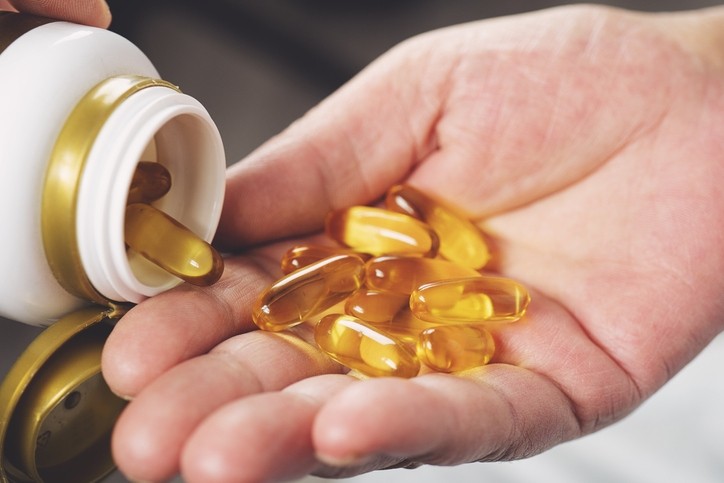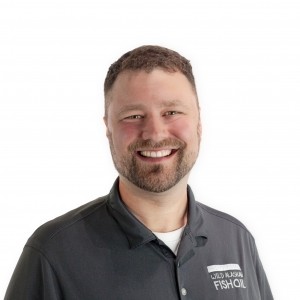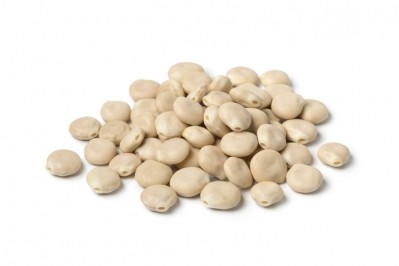Sam Wiley offers insights into omega-3s market as he moves on from company

Wiley said he’s moving on to support a career change for his spouse that will take his family to North Carolina from central Ohio where he grew up and began his professional career. Wiley said as he grew into his role as CEO of the company’s finished products brand, he learned something about his leadership style.
“More than anything as I’ve learned about my professional abilities I’ve found I’m really good at starting things,” Wiley told NutraIngredients-USA.
Creating a brand and a subcategory of omega-3s
The overarching entity for the company is Organic Technologies, based in Coshocton, OH. The company was originally focused on custom organic chemical manufacturing and distillation. When an opportunity arose to start working with omega-3 fish oil concentrates, the company was well positioned to take advantage, Wiley said.
Organic Technologies started working with the leftovers from the Alaska pollock fishery. Up to that time more than a decade ago fishery companies were using the oil extracted from the leftovers of packaging fish filets for market for low value uses, such as bulk sales for feed or to burn in boilers to produce steam.
Seeing the potential, the company created the AlaskOmega brand of fish oil concentrates. The company touted the ingredient’s made-in-USA message as well as the MSC-certified sustainability bona fides of the fishery itself. It added up to an attractive package that should have been an easier sell, Wiley said.
But in those days consumers were perhaps less motivated by sustainability and traceability concerns than they are now. Wiley said the company found that potential customers were tightly focused on supply track records. The sustainability stuff was seen as nice to have, but not a deal maker.
“That was a real uphill battle,” Wiley said. “Potential customers would tell us they loved the brand but couldn’t commit. They thought it was interesting, but too risky. ‘Are you guys going to be able to do the volume?’ was something they’d ask.”
So the company launched its own finished products brand, Wiley’s Finest. In so doing Wiley said the company both proved the market potential of the ingredient and created a whole separate subcategory of the overall omega-3s market.
“Before we started there really wasn’t a thing as an ‘Alaskan’ fish oil. Or a ‘Norwegian’ oil for that matter. We’ve added a whole subsection to the fish oil category,” he said.
Wiley said he’s proud that the company’s focus from the start on the sustainability and cleanliness of the raw material source has had a demonstrable effect on the market as a whole.
“I don’t think anyone was talking about bycatch and sustainable fishing practices before we started. Now our No. 1 competitor in the natural channel has the word ‘bycatch’ on its label,” Wiley said.
Attrition in the omega-3s market
Wiley said over the years there has been a significant attrition in the number of omega-3 SKUs on the market. In some ways he said those early days of the fish oils market was similar to the frenzy surrounding CBD today.
“A lot more brands had a fish oil line extension to their core offering, kind of like CBD today,” Wiley said.
But the companies that have stuck around, like Wiley’s Finest and prime competitors Nordic Naturals and Carlson’s, have weathered the sometimes stormy seas of omega-3s, Wiley said. It’s a much tougher market to prosper in then it might appear from the outside.
“This category is full of a lot of long-term, and faithful users. Surveys we’ve done with consumers show users who have been taking omega-3s for longer than 10 years, many for longer than 20. Those consumers are either brand loyal or driven solely by price,” Wiley said.
“Other brands come and go. That used to worry me, but it doesn’t anymore. Consumers clearly value a certified sustainable choice and the transparency of a Made in USA fish oil,” Wiley said.
“Other brands felt like they could enter the space with just money, but Garden of Life’s recent Dr. Formulated and the Enzymedica AquaBiome aren’t selling – it’s just a lot more difficult and complex than just spending money to enter the omega-3s space,” Wiley said.
Some fads have fallen by the wayside
Wiley said omega-3s have proven their longevity as a category, as they are among the oldest food ingredients in the modern nutrition trade.
“I’ve seen a lot of fads come and go: chia, raspberry ketones, bone broth, keto, etc. Long chain omega-3 EPA & DHA from fish oil and algae have staying power,” Wiley said.
Even in a space with such a long market history, shorter term fads are still a fact of life, Wiley said.
“Flax used to be a lot more dominant in healthy fats, now it has almost vanished,” Wiley said.
Long term trends look good for omega-3s
Looking ahead, Wiley said he foresees continued solid growth for the omega-3s category.
“I”m encouraged to see from population data that over the last few years seafood consumption in the United States has slowly been on the rise. The seafood consumer and the omega-3s supplement consumer are not that different. It’s a highly overlapping Venn diagram of those two groups,” Wiley said.
The plant-based and healthy-lifestyle trends will continue to affect the omega-3s market as well, he said.
“Plant based and vegan oils are becoming a major part of the supplement oil category,” Wiley said. “And as sports nutrition becomes more mainstream, more and more women joining the category through things like cross fit and other fitness pursuits.”
Sustainability concerns on the rise
Wiley also said sustainability concerns are now extending beyond raw material supply questions and reaching deep into companies’ operations. The current concern about plastic in the environment, for example, is something that some companies in the space have been slow to wake up to, Wiley said.
“A low plastic footprint and an awareness of the full lifecycle for packaging is becoming something you can’t ignore. I’m amazed at how many brands are still in all plastic bottles,” Wiley said.
















